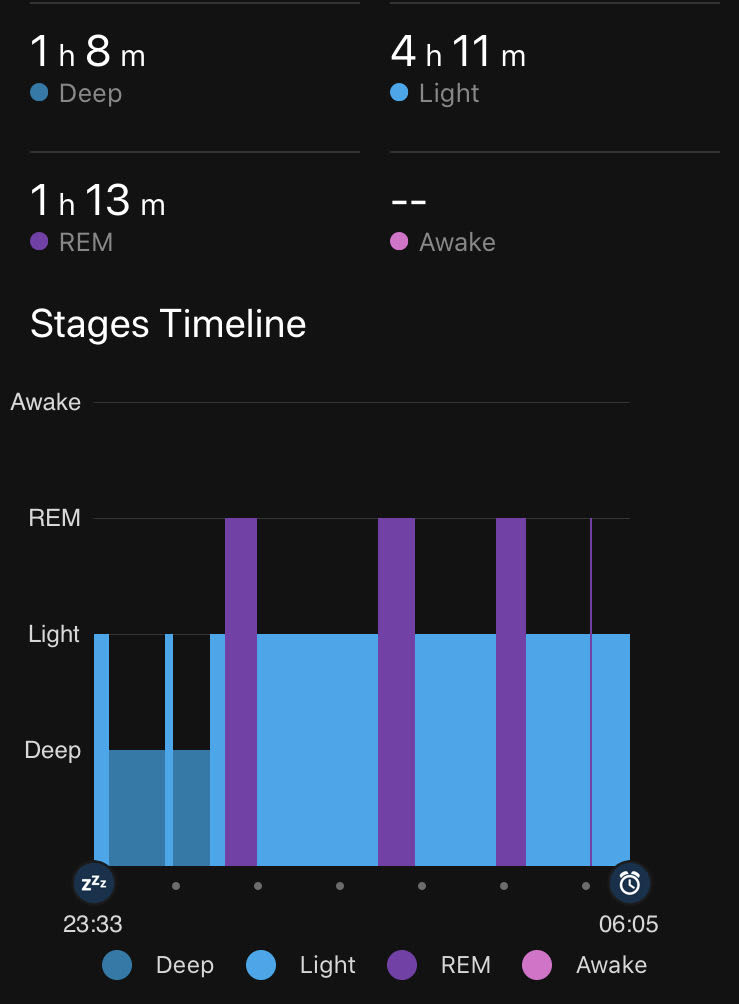
What does every morning start with? The alarm rings, I pick up an iPhone and ... check through the application how I slept there today.
Brad, of course: I can just listen to my body and clearly answer if I have slept. But no, give me the data - more graphs and numbers.
I'm sure I'm not the only one. According to this study , 10% of Americans already wear smart watches, and 50% are considering the possibility of such a purchase in the near future. Reddit has an r / Biohackers channel , and there are tons of posts like that:
“Guys, help! My Oura ring stably shows 55 points or even lower. And this despite all my efforts to improve sleep - activity during the day, meditation, a cold shower, no food 4 hours before bedtime, a blue screen lock on a smartphone. What to do?"That is, a person feels fine, but the tracker says that, they say, nothing like that! He knows better!
I think it makes no sense to write about the benefits of sleep and the horrors of its deprivation for a long time: everyone already knows that you need to sleep 7-8 hours and do it well, that is, fall asleep for 30 minutes and wake up no more than once per night.
But does studying sleep data help you sleep better?
According to a study by Rush University Medical College and Northwestern University's Feinberg School of Medicine, the use of sleep trackers can, on the contrary, aggravate insomnia. Gadgets often collect data carelessly, which makes people even more worried about it. In medical laboratories, for in-depth analysis of a person’s sleep, they are weighted from head to toe with various sensors (polysomnography), while Apple Watch and Fitbit draw conclusions based only on body movement and heart rate readings. At Pubmed you can read, for example, such a comparative analysis of various sleep trackers from world manufacturers. And here are the results of a study at Brown University.
Obviously, the error in reading data compared to polysomnography is very noticeable. Yes, trackers can provide general information about your dream that you already know for sure. And at the same time bring you to orthosomy - an obsession with “right sleep”.
An authoritative journal of the Journal of Clinical Sleep Medicine published an interesting study based on cases of three patients who turned to somnologists with sleep problems. Here is the conclusion the authors of the article make:
“Sleep trackers can increase the anxiety or perfectionism associated with sleep in some patients. Each patient sought treatment because of a feeling of lack of sleep. Despite numerous validation studies that have shown that consumer-worn sleep tracking devices are not able to accurately distinguish between the stages of sleep and have poor accuracy in determining awakening after sleep, the patient’s perception was difficult to change. Unintended sleep tracking effects for a group of patients may appear. For example, all three patients spent too much time in bed trying to increase the duration of sleep reported by the tracker, which could aggravate their insomnia. Given that these devices tend to overestimate sleep, they may have served to strengthen poor sleep habits by stimulating longer bed times. ”Another interesting conclusion:
“Patients who are overly dependent on their sleep monitoring devices may also have other problematic patterns of using the technology, for example, constant distraction to smartphone notifications, including at night. Although none of the patients specifically went into their sleep applications during the night, it is entirely possible that patients who are very worried about their sleep may be tempted to do this. ”
In general , I did not sleep longer from studying digits and graphs, I didn’t learn anything new, and I didn’t get an answer to the main question - how to solve my sleep problems specifically. It is much more beneficial to follow the advice of specialists tested by these international experience:
- go to bed and get up at the same time (on weekends too)
- sleep in a cool room (18-20 degrees)
- ensure complete darkness (curtain the windows, put on an eye mask)
- ensure minimal noise (using ear plugs, for example)
- avoid alcohol and caffeinated drinks and foods in the evening
- tidy up your smartphone 1-2 hours before bedtime
And no sleep trackers are needed.